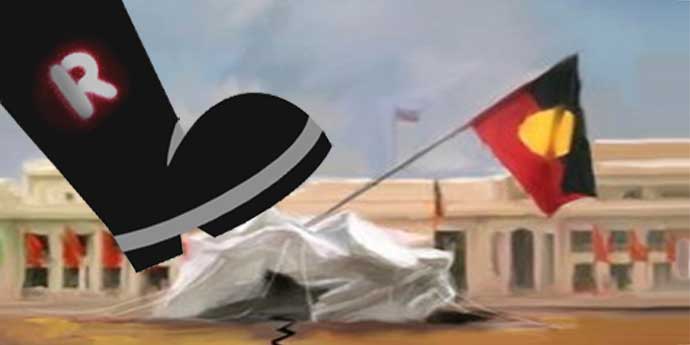Grassroots Aboriginal movement in NSW squashes 'Recognise'
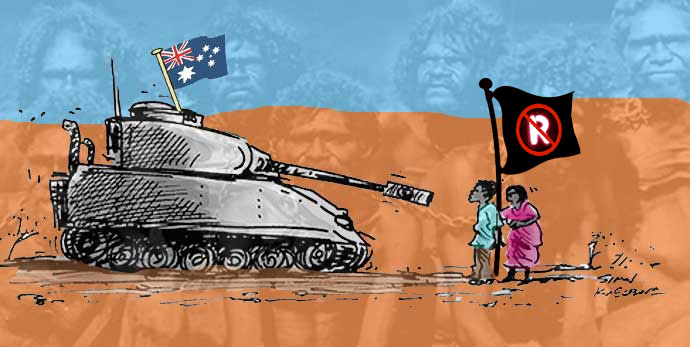
The government selected Referendum Council is currently attempting to swindle First Nations people into voting for 'Recognition' with invitation only Regional Meetings across the continent.

Sovereign Union 24 February 2017
Grassroots Aboriginal people from New South Wales have rejected recognition in the Australian Constitution in favour of Aboriginal Sovereignty, the need for Treaties and for government to enter discussions with First Nations.
'It is heartening to know that the Recognise Regional Meeting, organised by the Referendum Council and the New South Wales State Land Council, held in Dubbo on 17 and 18 February 2017 voted to reject First Nation Peoples' recognition in the colonial constitution from Britain and instead asserted Sovereignty and the need for Treaties and for the government to talk with First Nations,' Ghillar, Michael Anderson, Convenor of the Sovereign Union, said.
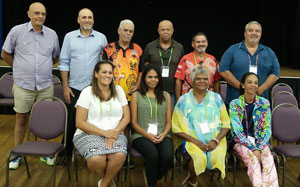
ENLARGE
Back L-R Wayne Carr, Jason Ford, Lyall Munro Jnr, Les Coe, Fred Hooper and Phillip Sullivan
Front: L-R Deidre Naden, Lynda-June Coe, Ruby Dykes and Gwenda Stanley
PERTH: 3-5 March, SYDNEY: 10-12 March, MELBOURNE: 17-19 March, CAIRNS: 24-26 March, ROSS RIVER: 31 March - 2 April, ADELAIDE: 7-9 April, BRISBANE: 21-23 April, TORRES STRAIT: 5-7 May, ULURU - National Convention (Delegates from all meetings): 24-26 May
Past Meetings: Tasmania, Broome, Dubbo, Darwin
Mr Anderson is also the last surviving member of the founding four of the original Aboriginal Embassy at Canberra in 1972. He is also Head of State of the Euahlayi Peoples Republic based at Goodooga, Euahlayi Nation, north-west New South Wales.
Lynda Coe, a Wiradjuri representative at the Dubbo meeting, said:
'Proud to say the agenda in Dubbo this weekend was Sovereignty/Treaty ... the dialogue around constitutional reform and recognise squashed by the grassroots movement! The consensus from those who attended agreed that the process of invite only meetings did not provide clear representation of nations in New South Wales nor did the process give authority of those attending to speak on behalf of their nations as per our procedures. The majority of those attending raised ... the issue of Sovereignty/Treaty be addressed by Governments rather than the 'yes vote' for constitutional reform and/or recognise.'
Ten delegates from the Dubbo meeting were elected to present their position to the National Convention to be held at Uluru from 24 to 26 May 2017. The delegates are Deirdre Naden, Lynda Coe, Ruby Dykes, Gwenda Stanley, Wayne Carr, Jason Ford, Lyall Munro Jnr, Les Coe, Fred Hooper and Phillip Sullivan.
According to Ghillar Michael Anderson the Australian Government is in a quandary over the legality of its sovereignty over Australia. Aboriginal people, on the other hand, are finding it very difficult 'to get out from under' the weight of government oppression which he likened to a German 'Reich' or regime. Mr Anderson also expressed his concern and disgust at the amount of money he believes the Australian Government is wasting on the Recognise campaign.
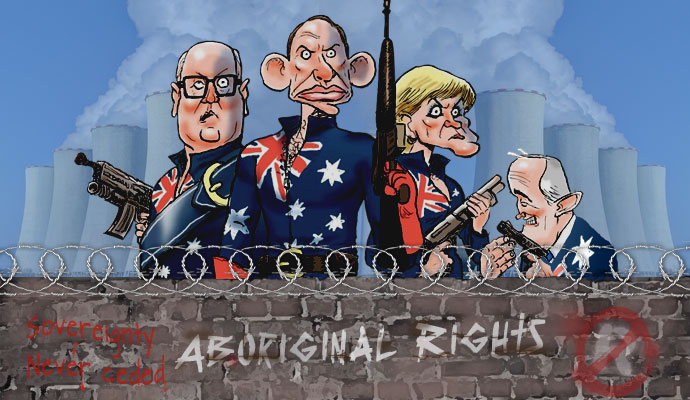
Leaders of the colonial military Reich, leading the discrimination and oppression of all the Sovereign First Nations Peoples
'The enormous amount of money being spent on brainwashing the public to accept constitutional change, so as to include Aboriginal people in the colonial constitution, is indicative of the quandary the Commonwealth government is in. Our predicament, on the other hand, is our difficulty in defending ourselves against dictatorship. We know full well the complex nature of getting out from under the rule and dominance of a 200 plus years' occupying power, which now rules by force and not by consent,' Mr Anderson said.
High Court expanded the concept of Terra Nullius to justify itself
'The quandary for the colonial military Reich, known as the Commonwealth of Australia, is to a large degree ignored by the public purely because, as is the so-called Australian way, 'she'll be right mate, just don't let it affect me'. The Australian custom of 'she's all right mate' only relates to enforcing non-Aboriginal property rights and the protection of the same, so as to ensure there is certainty, while at the same time protecting their rights to remain on stolen land and thus benefit from the proceeds of crime - such is the nature of their dismissive attitude and discriminatory tools in their well-defined institutionalised racist laws. These laws maintain security and certainty for the invaders against First Nations' interests.
'To comprehend what is underlying the headlong push of the Referendum Council and the Commonwealth government to get First Nations Peoples into the constitution by all means possible, we need to understand how they claim that British common law was allegedly imported into Australia, and the fraud and deceit perpetrated to mask the wrongdoings,' Mr Anderson said.
'The outcome of the 'Euahlayi Rates Dispute' case in the Queensland Supreme Court, [Ngurampaa v Balonne Shire & Anor [2014] QSC 146], is a clear example of how the 'expanded doctrine of terra nullius' denies us justice.
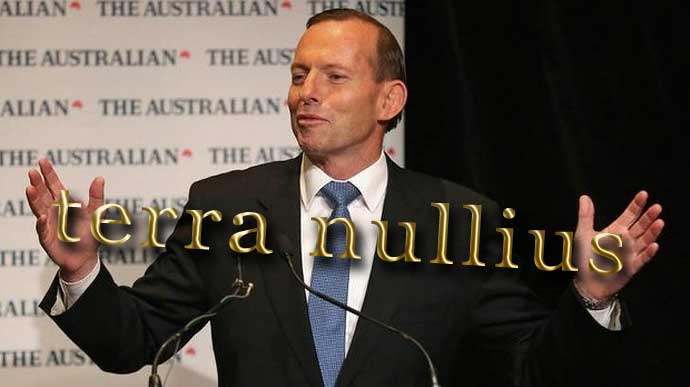
Expanded doctrine of terra nullius - very much alive in 'Australia', and indeed it's being expanded by the High Court to protect the government from it's fake claim of legitimate statehood. See links below next paragraph.
'Justice Philippedes in her judgement agreed with Balonne Shire Council's argument that Mabo Mabo (No. 2) established that:
At the time of acquisition of Australia sovereignty, international law recognised acquisition of sovereignty not only by conquest, cession, and occupation terra nullius, but also by the settlement of inhabited lands whether that process of "settlement" involved negotiations with and or hostilities against the native inhabitants. The High Court recognised this last mentioned method of the acquisition of sovereignty as applicable in the case of sovereignty. [Emphasis added]
'Justice Philippedes confirmed Aboriginal Peoples' inability to gain any kind of justice within the colonial legal system. The courts now hold themselves as the protectors of the earlier illegal regimes. Although the High Court in Mabo (No.2) supposedly removed terra nullius from the Australian legal system as its basis of sovereignty, the truth is very different. This position is clearly contrary to the International Court of Justice decision in the Western Sahara Case, which concluded that sovereignty remains with the Peoples. [Advisory Opinion on the Western Sahara, International Court of Justice, 16 October 1975]
'Additionally, former Prime Minister Tony Abbott's dismissive statement on the evening Justice Philippedes delivered her judgment on the Euahlayi Rates Dispute case, confirms the struggle the Commonwealth of Australia has in establishing any valid sovereignty,' Mr Anderson said.
On 4 July 2014 The Sydney Morning Herald reported Mr Abbott as saying: 'Our country is unimaginable without foreign investment. ... I guess our country owes its existence to a form of foreign investment by the British government in the then unsettled or, um, scarcely settled, Great South Land.'
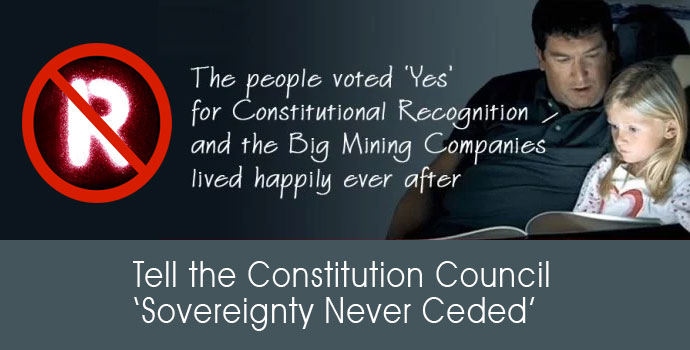
For more Information, Petition and 'No Vote' flyer downloads go to: Petition: Formal proceedings by the Referendum Council
'Abbott's concerted bipartisan push to have Aboriginal and Torres Strait Islanders 'Recognised' (assimilated) into the colonial constitution and Noel Pearson's statement of 10 September 2014 in The Australian about meeting the government halfway on racial bigotry, further emphasise the legal quandary the Commonwealth of Australia finds itself in,' Mr Anderson said.
'Whilst we may wonder why the Commonwealth government is now spending millions and millions of dollars on a brain-washing campaign, the answers for this can be found in Commonwealth and State legislation everywhere, for example in the Native Title Act, Amendments to the Western Australian Heritage Act, the New South Wales Crown Lands Act, the New South Wales Biodiversity Conservation Act 2016, and the list goes on.
The Mabo Decision confirmed our Sovereignty
'All of this legislation violates and attacks First Nations' Law, culture and usage, and in doing so contradicts the Mabo Mabo (No. 2) decision that recognises Aboriginal Law, custom and usage, and is now, by legal definition, part of the common law of Australia.
'So by violating First Nations Law, culture and usage, the colonists are also violating their own laws, which are incorporated into the colonial judicial system, are part of the colonial common law, and cannot be ignored.
'As First Nations Peoples we must understand that the priority for the Commonwealth, State and Territory governments is to secure their right to decide on matters that impact on Aboriginal Law, culture and usage, regardless of what the procedures of Respect are.
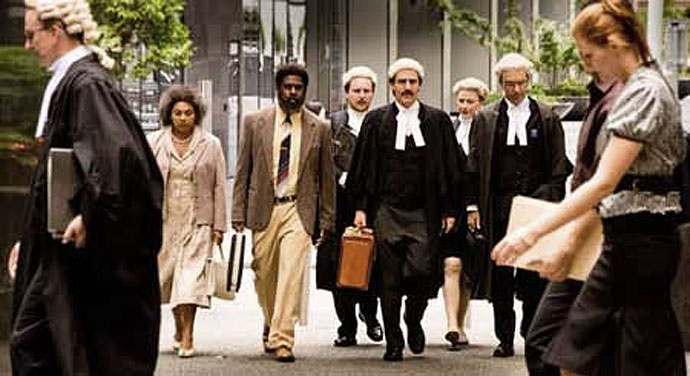
On 21 January 1992, Eddie Koiki Mabo died of cancer at the age of 55, five months before the High Court announced its historic decision, namely overturning the legal doctrine of terra nullius. on 3 June 1992
'In Mabo Mabo (No. 2) the High Court "discharged its duty" to explain how British common law came to Australia, only to conclude that the Commonwealth needed to obtain consent from First Nations Peoples to be ruled by their illegal colonial occupying power. Here is the key to understanding "Recognise", the Referendum Council, and why so much expense and effort is being put into the Recognise campaign in order to coerce the public into believing that they would be doing the right thing by voting "Yes" in the referendum to "recognise" Aboriginal and Torres Strait Islander people in the Australian Constitution. Thankfully our own people are awake and educating themselves to the deceit embedded in this process, even though the "No" position is not being funded,' Mr Anderson said.
'The recent meeting in Dubbo made it very clear that we are independent sovereign Nations and continue to be such in the present and to this extent call for negotiated Treaties as opposed to constitutional recognition. Many of our mob are clearly also awake to the fact that the Regional Meetings of the Referendum Council are putting the cart before the horse, as no final wording for the Referendum has been produced.
'In attempting to explain how British common law came to Australia, the High Court in Mabo (No. 2), in its 'expanded notion of terra nullius', concluded that in reality the continent, now known as Australia, was never conquered nor ceded, but was occupied as though it was an uninhabited empty wasteland.
'I now ask: How can the High Court get out of its quandary that the Australian claim to sovereignty is based on the land being uninhabited, when it was clearly inhabited by First Nations peoples for millennia before the arrival of the First Fleet in 1788, and onwards? The short answer is they can't! The High Court judges were between a rock and a hard place and have had to rely on deceit and fraud to avoid, as was stated in Mabo Mabo (No. 2) at paragraph 29: "... fracturing the skeleton of principle which gives the body of our law its shape and internal consistency."'
'Although the High Court had to recognise that Aboriginal and Torres Strait Islanders have inhabited the land since time immemorial and have Laws, customs and usages of our own, the judges then adopted the expanded notion of terra nullius to maintain the status quo of the illegal colonial occupying power. Paragraph 36 of Mabo Mabo (No. 2) is an insight into the basis of the fraud and deceit we continue to suffer under:
36. When British colonists went out to other inhabited parts of the world, including New South Wales, and settled there under the protection of the forces of the Crown, so that the Crown acquired sovereignty recognized by the European family of nations under the enlarged notion of terra nullius, it was necessary for the common law to prescribe a doctrine relating to the law to be applied in such colonies, for sovereignty imports supreme internal legal authority [(46) see A. James, Sovereign Statehood, (1986), pp. 3ff., 203-209].
The view was taken that, when sovereignty of a territory could be acquired under the enlarged notion of terra nullius, for the purposes of the municipal law that territory (though inhabited) could be treated as a "desert uninhabited" country. The hypothesis being that there was no local law already in existence in the territory [(47) Lyons (Mayor of) v. East India Co. [1836] EngR 1155; (1836) 1 Moo PC 175, at pp 272-273 (12 ER 782, at p 818); Cooper v. Stuart (1889) 14 App Cas; The Lauderdale Peerage (1885) 10 App Cas 692, at pp 744-745; Kielley v. Carson [1842] EngR 593; (1842) 4 Moo PC 63, at pp 84-85 [1842] EngR 593; (13 ER 225, at p 233)], the law of England became the law of the territory (and not merely the personal law of the colonists).
Colonies of this kind were called "settled colonies". Ex hypothesi, the indigenous inhabitants of a settled colony had no recognized sovereign, else the territory could have been acquired only by conquest or cession. The indigenous people of a settled colony were thus taken to be without laws, without a sovereign and primitive in their social organization.
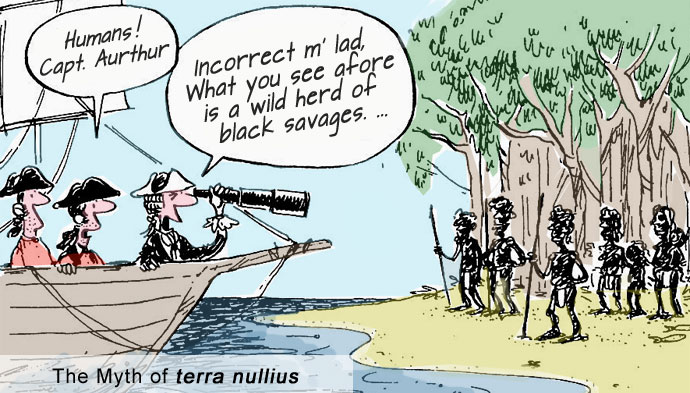
terra nullius has been a generally accepted international protocol dating from the late 15th century. papal bull 'Doctrine of discovery' has its roots in a papal decree issued by Pope Nicholas V in 1452 that specifically sanctioned and promoted the conquest, colonization, and exploitation of non-Christian territories and peoples. See:Australia's claim to be a legitimate government reveals an intriguing web of deceit
'Clearly the 'expanded notion of terra nullius' relies on a hypothesis that has been soundly disproved, because First Nations Peoples are not without Laws, are sovereign and have a highly evolved and complex social organisation and governance (still barely understood by the newcomers). So once again the Commonwealth of Australia has to rethink how it can claim sovereignty over the continent,' Mr Anderson said.
'Enter the Referendum Council and the "Recognise campaign", heavily funded by mining companies, prisons etc - enough to alert everyone there is something sinister afoot. The solution to comprehending the logic behind the proposed referendum is in paragraph 35 of Mabo (No. 2):
Where Englishmen establish themselves in an uninhabited or barbarous country, they carry with them not only the laws, but the sovereignty of their own State; and those who live amongst them and become members of their community become also partakers of, and subject to the same laws.
'The last phrase is, in my opinion, the key to understanding the Recognise campaign and the role of the Referendum Council, that is, the Commonwealth government and the High Court understand full well that their claim to sovereignty is based on an internationally recognized wrongdoing and their only way out is to coerce First Nations Peoples to "become members of their community, become also partakers of, and subject to the same laws". This is their only hope of countering our Sovereignty Movement, which is gaining momentum.
Recognition even more sinister than the policies of assimilation
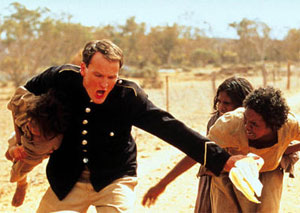
'The vile and insidious new method to assimilate us through constitutional recognition is much more sinister and evil than even the original policies of assimilation. The new approach to constitutional recognition, which is being adopted now, underlies the government's continued policy of assimilation. They failed in their overt attempts in their original assimilation policy by stealing our patrimony, by kidnapping our children, so as to de-Aboriginalise them and to "breed the colour out".
'But this assimilation policy did work for those Aboriginal and Torres Strait Islander people who exhibit the Stockholm syndrome and now do the bidding of the colonisers and work against our interests, whilst those of us brought up on Country, in fringe dwellings, camps, or confined to missions, continue our observance of our Law and culture. This aligns us with our inherent sovereign heritage, as opposed to those who suffer from the Stockholm syndrome.
'The Australian courts know full well that it is a wrongdoing to continue the fraud of denying the complex nature of First Nations' settled Law at the time of invasion by the British in 1788, but, on the other hand they also know that to rectify the fraud is to undo their present existence as a Nation State and the head of power would thus be transferred back to the true sovereigns of the soil, the First Nations and Peoples. Thus the High Court chose to avoid contemporary notions of justice and human rights, preferring to maintain the status quo by not fracturing the "skeletal framework" as stated in Mabo (No.2) at Paragraph 29:
'It is also incorrect for the High Court to reveal its bias by not wanting to deal with land justice when it concluded:
'There is no time limit on murder, including the deaths of many hundreds of children in the "stolen generation" periods, which continue, and the current murders that can be attributed to deaths in custody. Australian governments are complicit in modern-day genocidal practices that include:
- Killing members of the group
- Causing serious bodily or mental harm to members of the group (reflected in Aboriginal youth suicide-the highest rate in the world)
- Deliberately inflicting on the group conditions of life calculated to bring about its physical destruction in whole or in part
- Imposing measures intended to prevent births within the group
- Forcibly transferring children of the group to another group
![]() UN Definition and Prevention of Genocide pdf
UN Definition and Prevention of Genocide pdf
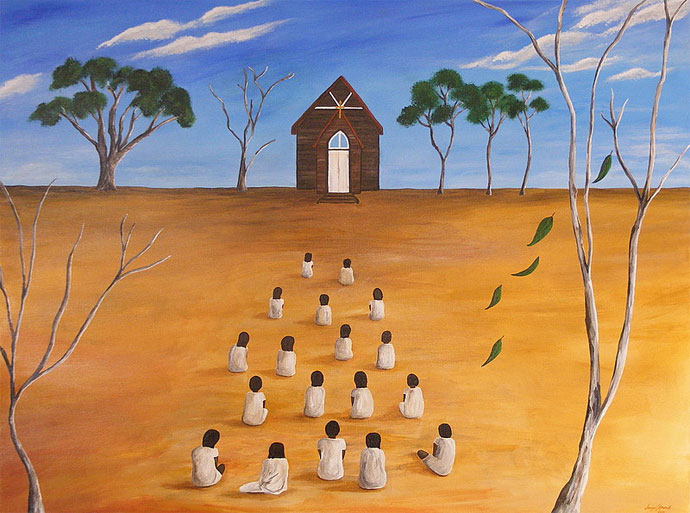
Hope Beyond the Window; a Stolen Generation by Jacqui Stewart
'The headlong rush to include First Nations Peoples in the Australian Constitution must be stopped in order for us to debate fully and publicly a way forward that affords all of us equity in the sharing of power and the wealth that is obtained from our great lands, so as to ensure that our position is very well defined in terms of our assertion of our right to exist as independent sovereign First Nations under our Law and culture, without prejudice.
'Our Unilateral Declarations of Independence affirm the continuing independence of First Nations Peoples, who have never been included in the Australian Constitution and have asserted our right under international law to exist and escape the tyranny of the illegal occupying colonial power. This is our increasingly effective resistance in the modern era,' Mr Anderson said.
 Contact: Ghillar Michael Anderson
Contact: Ghillar Michael AndersonConvenor of the Sovereign Union and Head of State of the Euahlayi Peoples Republic
Contact Details here
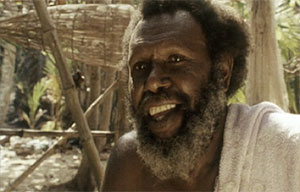
Eddie Koiki Mabo (1936 – 1992)
Mabo v Queensland (No 2)
Mabo Mabo (No. 2) paragraphs 34, 35:
34. The enlarging of the concept of terra nullius by international law to justify the acquisition of inhabited territory by occupation on behalf of the acquiring sovereign raised some difficulties in the expounding of the common law doctrines as to the law to be applied when inhabited territories were acquired by occupation (or "settlement", to use the term of the common law). Although Blackstone commended the practice of "sending colonies (of settlers) to find out new habitations", he wrote (34) Commentaries on the Laws of England, 17th ed. (1830), Bk II, ch 1, p 7:
so long as it was confined to the stocking and cultivation of desert uninhabited countries, it kept strictly within the limits of the law of nature. But how far the seizing on countries already peopled, and driving out or massacring the innocent and defenseless natives, merely because they differed from their invaders in language, in religion, in customs, in government, or in colour; how far such a conduct was consonant to nature, to reason, or to christianity, deserved well to be considered by those, who have rendered their names immortal by thus civilizing mankind.
As we shall see, Blackstone's misgivings found a resonance in international law after two centuries (35) Advisory Opinion on Western Sahara (1975) 1 ICJR 12. But he was unable to declare any rule by which the laws of England became the laws of a territory, which was not a "desert uninhabited" country when the Crown acquired sovereignty over that territory by discovery and occupation as terra nullius. As the British acquisition of sovereignty over the Colony of New South Wales was regarded as dependent upon the settlement of territory that was terra nullius consequent on discovery (36) See E. Evatt, op cit, at p 25; Cooper v. Stuart (1889) 14 App Cas 286, and as the law of New South Wales is the source of the law applicable to the Murray Islands, we must next examine the basis on which the common law was received as the law of the Colony of New South Wales.
35. ... According to Blackstone, English law would become the law of a country outside England either upon first settlement by English colonists of a "desert uninhabited" country or by the exercise of the Sovereign's legislative power over a conquered or ceded country. Blackstone did not contemplate other ways by which sovereignty might be acquired.
See also:
UN General Assembly Resolution 2625 (XXV)
Declaration on Principles of International Law Concerning Friendly Relations and Cooperation Among States in Accordance with the Charter of the United Nations
